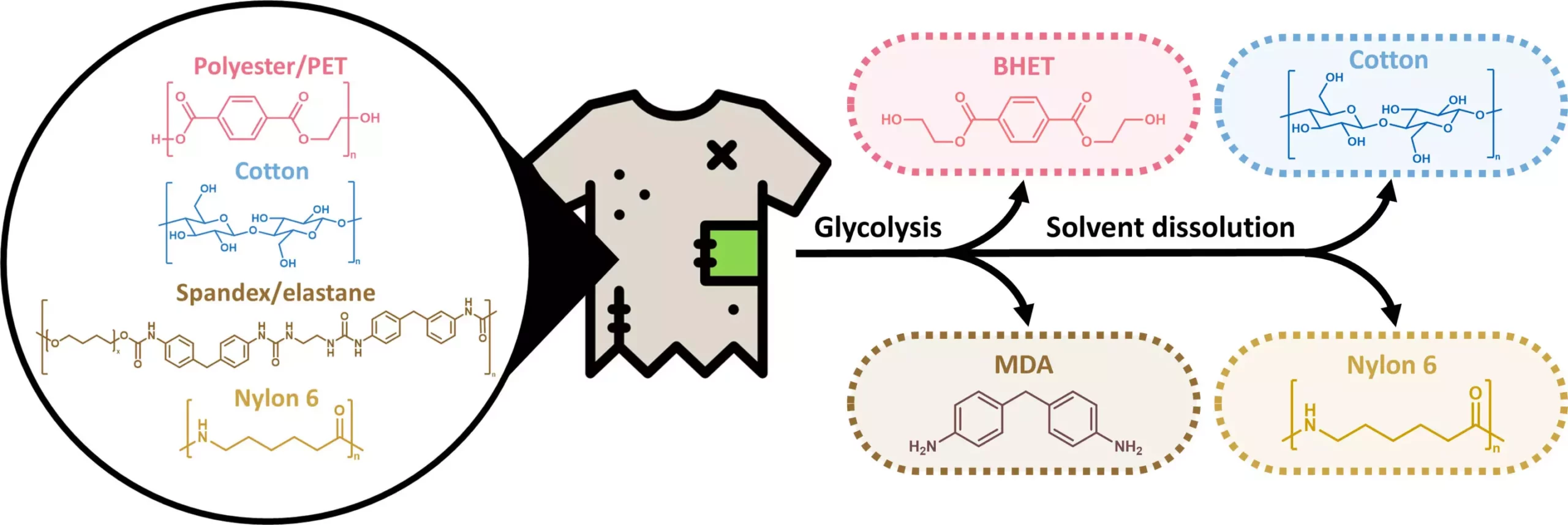In a groundbreaking study conducted by a team of chemical and biomolecular engineers from the University of Delaware and the Center for Plastics Innovation, a new method for recycling textiles has been developed. This innovative approach aims to address the growing issue of textile waste resulting from the fast fashion industry.
The research team has devised a process that involves chemically separating fibers in textiles, allowing for a more efficient and cost-effective recycling process. By using a solvent to break the bonds that hold different materials together, such as polyester, nylon, and cotton, the researchers were able to expedite the recycling process. Adding zinc oxide as a catalyst and utilizing a microwave oven further accelerated the breakdown of textiles, with results showing that fibers could be separated in as little as 15 minutes.
One of the key findings of the study was the ability to retain the material integrity of nylon and cotton fibers during the recycling process. This suggests that these materials could be used to create new batches of clothes, contributing to a more sustainable and circular fashion industry. Additionally, the breakdown of polyester into BHET, an organic compound that can be used to create more polyester, offers the potential for further recycling and reuse of materials.
While the new recycling process shows promising results, the researchers identified challenges such as the interference of flame retardant chemicals used in clothing treatments. Addressing these obstacles will be crucial in scaling up the recycling method for commercial use. Furthermore, the study offers math models to demonstrate the economic viability of the process, indicating that it could be a feasible solution for textile recycling on a larger scale.
The development of a novel method for recycling textiles marks a significant advancement in sustainable fashion practices. By addressing the complexities of textile waste and offering a practical solution for recycling multiple types of fibers, this research paves the way for a more environmentally friendly approach to clothing production. As the fashion industry continues to evolve, innovations like this will play a crucial role in promoting circularity and reducing the environmental impact of textile manufacturing.


Leave a Reply